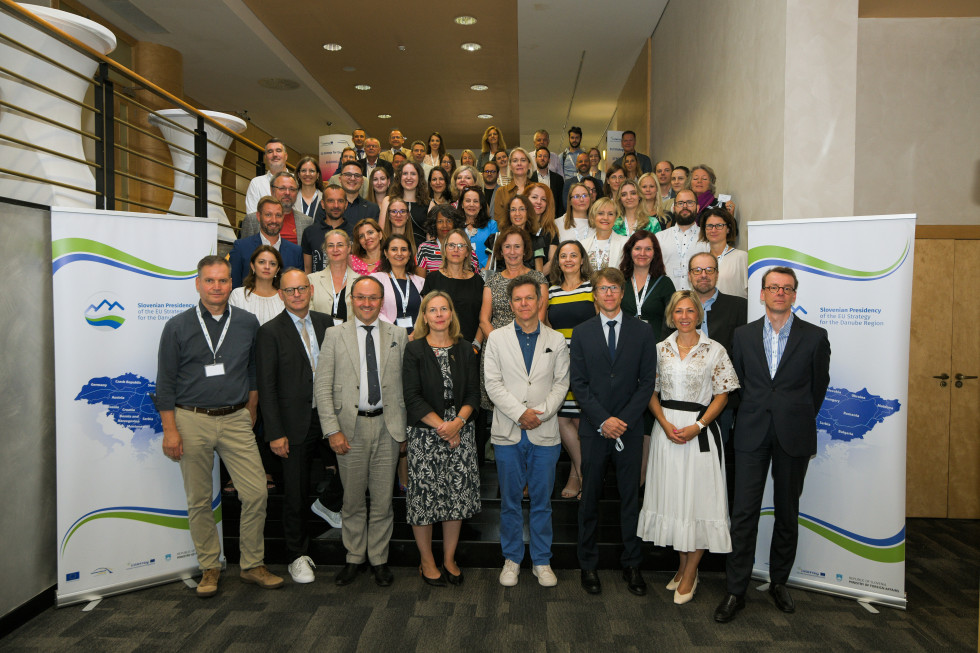Joint meeting of EUSDR National Coordinators and Priority Area Coordinators

EUSDR National Coordinators and Priority Area Coordinators | Author Ministrstvo za zunanje in evropske zadeve
The meeting, gathering together National Coordinators and Priority Area Coordinators of EUSDR focused on the upcoming 12th EUSDR Annual Forum and Ministerial meeting on 24 and 25 October in Brdo pri Kranju, Slovenia. It was also an opportunity to take stock of the current and upcoming activities and developments of the Strategy on the national level as well as on the priority area level, with a strong emphasis on the inclusion of youth in EUSDR. An important point in the agenda was the European Commission's role in the EUSDR's governance.
The second day's discussion turned to the consultation results of the Presidency's Guidelines on Empowering Involvement and the following steps to implement these Guidelines. The Guidelines present 12 recommendations for better EUSDR visibility, funding possibilities and stronger political and stakeholder involvement, and are an important contribution of the Slovenian EUSDR Presidency to the implementation of the Strategy.
Supporting stakeholder involvement and the review of the EUSDR Governance Structure was another important point of the agenda, with the Danube Strategy Point presenting the current process and next steps. The Danube Region Programme presented their Call for proposals as well as the Seed Money Facility instrument. The meeting ended with a short introduction to the EUSDR Presidency programme of Austria, which will assume the Presidency after Slovenia.
The Joint meeting of National Coordinators and Priority Area Coordinators continues with the activities of the eight Mediterranean Coast and Macroregional Strategies Week from 19 to 22 September in Izola.
The Danube Region Strategy addresses a wide range of issues divided among 4 pillars and 12 Priority Areas. Each Priority Area is managed by two countries as Priority Area Coordinators (PACs). The National Coordinators (NCs) are the core strategic body within the EUSDR governance structure. They have a strategic coordination function within their national or regional government. The NCs coordinate and keep an overview of their country's participation in the implementation of the EUSDR, including all 12 Priority Areas (PAs). They also promote the EUSDR and inform all the relevant stakeholders of key developments and ongoing initiatives at the national and regional levels, including the alignment of policies and funding.

